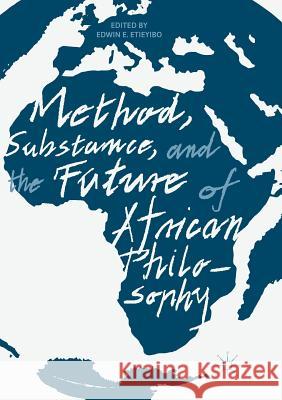Method, Substance, and the Future of African Philosophy » książka
topmenu
Method, Substance, and the Future of African Philosophy
ISBN-13: 9783030099404 / Angielski / Miękka / 2019 / 384 str.
Kategorie BISAC:
Wydawca:
Palgrave MacMillan
Język:
Angielski
ISBN-13:
9783030099404
Rok wydania:
2019
Ilość stron:
384
Waga:
0.45 kg
Wymiary:
21.01 x 14.81 x 2.01
Oprawa:
Miękka
Wolumenów:
01
Dodatkowe informacje:
Wydanie ilustrowane











